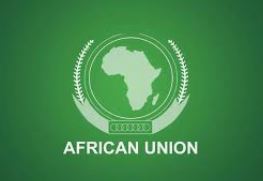
African countries under the Africa Union (AU) are intensifying their search for justice over the colonial crimes committed against them as Algeria plays host to the International Conference on the Crimes of Colonialism in Africa this coming weekend.
The meeting set for the capital Algiers will boost AU’s unified, continent-wide policy for reparations that represents the demands of all 55 member states.
This is also under AU’s Theme of the Year 2025: "Justice for Africans and People of African Descent through Reparations."
Progressively, in February 2025, AU member states adopted an all Assembly Decision 903(XXXVIII) in Addi Ababa, Ethiopia, which endorsed the offer made by the President of the Peoples Republic of Algeria, Abdelmadjid Tebboune to convene the conference in Algiers to solidify the search for justice.
And on November 30 and December 1, 2025, President Tebboune, will open the doors for hundreds of government ministers, policy makers and historians from Africa and the Caribbean islands, resident for millions of people of African descent.
“The meeting aims to formulate a unified African position on seeking justice and reparations for colonial-era injustices,” a statement from the Algerian government says.
This initiative is rooted in Algeria's historic legacy as a nation that has paid a heavy price for colonialism and remains deeply committed to defending the dignity, memory, and rights of African peoples.
Algeria experienced severe and prolonged colonial oppression under French rule from 1830 to 1962, a period characterised by systemic violence, economic exploitation, and cultural erasure.
From the archives, the 132-year occupation inflicted immense suffering and left a lasting impact on the nation.
“Under the leadership of President Abdelmadjid Tebboune. Algeria is working to strengthen collective reflection and action aimed at criminalising colonialism, slavery, racial segregation, and apartheid as crimes against humanity, in line with the relevant recommendations of the African Union,” states a document from the Algerian government.
Algeria, like its fellow African nations - that have endured similar struggles - remains steadfast in its commitment to defending the dignity, memory, and fundamental rights of the African peoples.
The deliberations will address the human, cultural, economic, environmental, and legal dimensions of colonial crimes, with a focus on intergenerational trauma, the spoliation and destruction of African cultural heritage, the exploitation of resources and the inequitable economic models inherited from colonialism, the environmental impacts including nuclear testing conducted on African populations, as well as the legal pathways enabling the strengthening of the criminalization of colonialism and the establishment of a permanent African mechanism for reparations and restitution.
As host and initiator, Algeria aims to contribute to strengthening Africa's architecture for historical justice, by providing a high-level platform to advance international recognition of colonial crimes and promote concrete mechanisms for reparative action.
One of the key expected outcomes is the adoption of the "Algiers Declaration", which is intended to serve as a continental reference for the codification of colonial crimes, the recognition of their impacts, and the development of an African strategy for justice and reparations.
This declaration will be submitted to the African Union Summit of February 2026 for consideration and endorsement.














